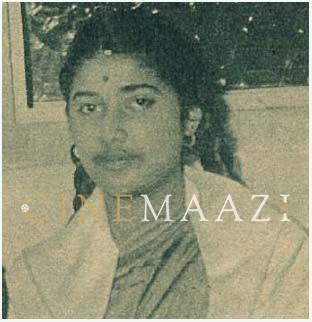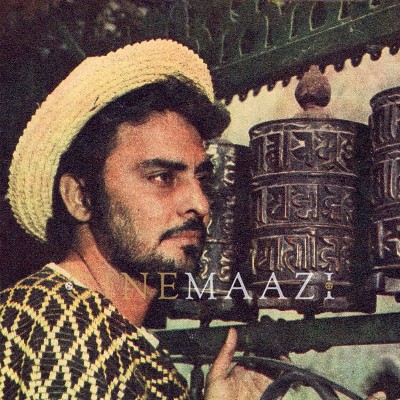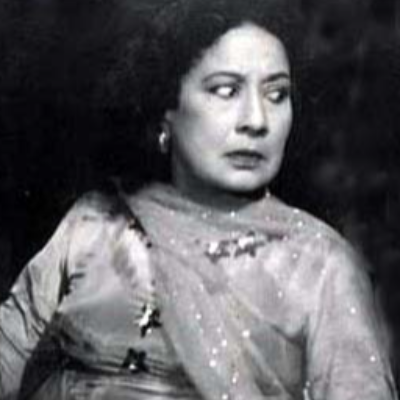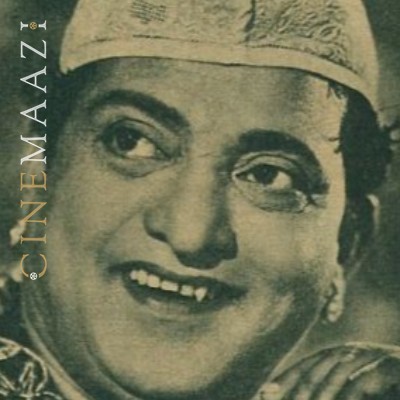Aarti Mukherjee

Subscribe to read full article
This section is for paid subscribers only. Our subscription is only $37/- for one full year.
You get unlimited access to all paid section and features on the website with this subscription.
Not ready for a full subscription?
You can access this article for $2 , and have it saved to your account for one year.
- Born: 18 July, 1945 (West Bengal)
- Primary Cinema: Hindi
One of the leading playback singers of Bengali films who also sang in Hindi language cinema, Aarti Mukherjee has rendered songs in films such as Geet Gata Chal (1975), Tapasya (1976), Manokamana (1980) and Masoom (1983).
Known also as Arati Mukhopadhyay, she was born on 18 July, 1945, in West Bengal. Her family background was rich in cultural and musical heritage. Introduced to music by her mother, she went on to train under Shri Susheel Banerjee, Ustad Mohammed Sagiruddin Khan, Pandit Chinmoy Lahiri, Pandit Laxman Prasad Jaipurwale and Pandit Ramesh Nadkarni.
Well-versed in Indian classical music, she entered playback singing through a musical contest called Metro-Murphy Contest, which was judged by music directors like Anil Biswas, Naushad, and C Ramchandra judged her. It was her dream to go to Bombay and emulate the success of the great Lata Mangeshkar. She also participated in the All India Music Talent Programme to chase her dream.
She got her first break in playback singing for Hindi films in 1958 when she was chosen to sing for a film called Sahara (1958), starring Meena Kumari. She also rendered playback for another Meena Kumari film called Char Dil Char Rahen (1959). However, luck did not permit her to become a successful playback singer at a tender age. She thus diverted her attention to the Bengali film industry and made her debut singing for the film, Kanna, which released in 1962. She soon grew into a renowned playback singer, and from the late 60s to the 80s, she provided voice on screen for heroines such as Suchitra Sen, Aparna Sen, Sharmila Tagore, Madhabi Mukherjee, and Tanuja. In fact, she replaced the famous singer Sandhya Mukherjee for actresses like Tanuja and Suchitra Sen, and also won many awards from the Bengali film industry.
Reigning over the Bengali film playback scene at the time along with Asha Bhosle, she sang many popular Bengali hits with Manna Dey, Kishore Kumar, and Hemant Kumar. She also rendered songs for private albums in various regional languages too.
Her success in Bengali films prompted her to venture into the Hindi film industry a second time around. She rendered songs such as Bacche ho tum khel khilone and a duet with Kishore Kumar titled Do panchi do tinke from the film Tapasya (1976). One of her career-best songs came in 1983 from music director R D Burman. She thus rendered Do naina aur ek kahani in the film Masoom, voicing Shabana Azmi. The lullaby was rich in melody and meaning and won her the Filmfare award for Best Female Playback Singer.
Mukherjee’s cache of popular songs includes Radha banshi chara janena, Ek boishakhe dekha holo dujonar, Ei mon jochonay ongo bhijiye, Ja ja behaya pakhi jana, and Tokhon tomar ekush bochor bodhoy.
Having rendered hundreds of songs in Bengali, Hindi, Oriya, Manipuri, Assamese, Gujarati, Marathi and other languages, she has also engaged audiences with albums and live performances on television and stage. A proponent of Rabindra Sangeet and Nazrul Geeti, Mukherjee’s versatility is seen in the diverse genres of music such as Thumri, Bhajan, Tappa, Tarana, and Ghazal that she has performed in India and across the world.
Among the honours she has won is the Miyan Tansen award of Sur Singar Samsad for her performance in Geet Gata Chal, the Gujarat State Government Awards for three consecutive years for her Gujarati film songs, Lifetime Achievement Award from the Orissa Government (2015), Lifetime Achievement Award from Times of India Group (2016), Filmfare Award for Best Female Playback Singer for the song Do naina in Shekhar Kapur's Masoom, Bengal Film Journalists' Association – Best Female Playback Award for Chhutir Phande (1976), and Bengal Film Journalists' Association – Best Female Playback Award for Galpa Holeo Satti (1967).












.jpg)



